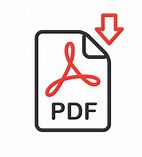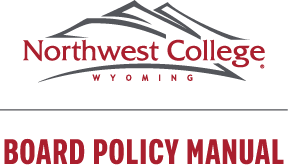To print please use PDF download.
I. Responsibilities
The Board of Trustees shall adhere to the following code of ethics and conduct:
Governing Board members are responsible to:
-
devote time, thought, and study to the duties and responsibilities of a community college Board member so that they may render effective and creditable service;
-
represent the Board appropriately in public as an elected official;
-
bear in mind under all circumstances that the primary function of the Board is to establish the policies by which the community college is to be administered;
-
work with fellow Board members in a spirit of harmony, cooperation, and respect in spite of differences of opinion that arise during vigorous debate;
-
base decisions upon all available facts in each situation; vote their honest conviction in every case, with careful thought and consideration unswayed by partisan bias of any kind; and abide by and uphold the final majority decision to the Board. Board members are encouraged to speak with one voice following a decision of the Board;
-
understand that trustees have no authority as individuals but must act with the Board as a whole; give direction to the College President as a Board, not as individuals; and conduct relationships with community college staff, local citizenry, and media on this basis;
-
avoid using the trustee position to promote personal, business or professional interest and avoid seeking special privileges or private gain apart from the total interest of the community college district;
-
as a point of courtesy, attempt to notify the Board President and College President prior to addressing sensitive topics in a public meeting;
-
follow federal, state and College laws, rules, regulations and policies;
-
focus on the future and set aside past events;
-
rely on the Board President and College President as the official College spokespersons to the media for the Board.
II. Enforcement
- A member of the Board of Trustees who reasonably believes that a Trustee has violated the Board Code of Ethics and Conduct, a policy, rule, regulation, or law shall report the violation to the Board President. The Board President shall work with the alleged offender to resolve the issue informally if possible. If the alleged offender is the Board President, the violation shall be reported to the Board Vice-President.
- If informal resolution is not possible, the Board President shall request the matter be investigated by the College’s Dispute Resolution Officer or a duly qualified unbiased third party and brought before the Board for an informal hearing.
The alleged offender shall be given advance notice of at least 10 working days of the time, place, and date of the informal hearing. The notice shall state the factual basis for the alleged violation and identify the provision of the Board Code of Ethics and Conduct, policy, rule, regulation, or law allegedly violated.
Unless the alleged offender requests a public meeting, the matter shall be heard in executive session pursuant to the Wyoming Public Meetings Act [W.S. 16-4-601]. - The remaining Trustees shall, by vote, determine whether a violation occurred.If the Board determines a violation occurred, the Board shall determine appropriate sanctions. Sanctions may include public censure and suspension of travel.
- If the alleged violation is believed to be a violation of the law including the Ethics and Disclosure Act [W.S. 9-13-101], the matter shall be turned over to the county attorney or appropriate enforcement agency.
In the event of a violation of the Ethics and Disclosure Act, felony conviction, or otherwise where the law allows, the Board may recommend removal from office, in which case the alleged offender shall be given an opportunity for a hearing before the Board of Trustees in accordance with the College’s Rules governing Contested Case Hearings.

